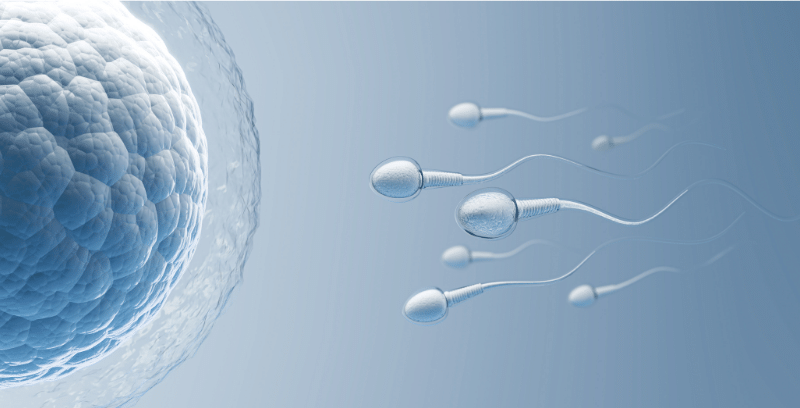In the realm of assisted reproductive techniques, In Vitro Fertilization (IVF) with sperm donation emerges as a transformative alternative, especially in cases where male partners confront severe abnormalities affecting semen quality or reproductive function. This groundbreaking method becomes a lifeline for couples facing challenges in traditional conception due to male-related infertility factors, providing a pathway to realize the dream of pregnancy and parenthood.
Indications for Sperm Donation in IVF
Sperm donation in in vitro fertilization (IVF) treatment may be recommended for various situations. Insufficient sperm quality, genetic disorders, the need for treatment in single women, or the desire of single gay men to biologically have children are among the scenarios where sperm donation is considered. In these cases, it is crucial for a reproductive health specialist to assess the suitability of sperm donation.
Male Infertility Issues
Exploring scenarios such as azoospermia, oligozoospermia, or ejaculatory dysfunction where male infertility poses significant hurdles.
The role of sperm donation in overcoming these challenges and ensuring a viable path to conception.
Genetic Concerns
- Delving into situations where male partners carry genetic defects with inheritable implications.
- How IVF with sperm donation becomes a recommended solution to mitigate the risk of passing on significant genetic abnormalities.
Absence of Male Partner
- Addressing the needs of single women or lesbian couples desiring pregnancy in the absence of a male partner.
- The role of sperm donation in offering a viable reproductive option for diverse family structures.
Step-by-Step Procedure of IVF with Sperm Donation
When in vitro fertilization (IVF) treatment is conducted with sperm donation, it involves a specific procedure. Initially, the couple undergoes a detailed assessment with a reproductive health specialist. Subsequently, the woman’s ovaries are stimulated with special medications, and the process of collecting mature eggs is carried out. The collected eggs are fertilized with donated sperm in a laboratory setting, and the development of embryos is monitored. The highest-quality embryos are then transferred to the woman’s uterus, and the success of the treatment is evaluated through a pregnancy test. These steps constitute the fundamental procedure of IVF with sperm donation.
Sperm Donor Selection
- Detailing the meticulous process of sperm donor selection, including health screenings, genetic tests, and accessible donor profiles on sperm bank websites.
- The importance of informed and thoughtful donor selection in the IVF journey.
Ovarian Stimulation and Egg Retrieval
- Outlining the tailored medication protocols based on health reports, with a focus on ovarian development monitored through vaginal ultrasounds.
- Describing the sedated egg retrieval procedure and its timing, typically around 36 hours post-trigger shot.
Fertilization and Embryo Development Monitoring
- Explaining the fertilization stage where collected eggs meet carefully selected donor sperm using microinjection (ICSI) techniques.
- Highlighting the monitoring of embryo development over five days, with a focus on reaching the blastocyst stage and selecting the best embryos for further development.
Embryo Transfer and Pregnancy Confirmation
- Detailing the crucial steps of embryo transfer into the uterus, considering factors like age, health, prior IVF attempts, and embryo quality.
- Confirming pregnancy through a blood test, usually conducted 12 days after embryo transfer.
Cryopreservation for Future Use
- Exploring the practice of cryopreserving additional embryos post-transfer for potential future use.
- Discussing the importance of preserving options for growing families or addressing any unforeseen challenges.
As couples embark on the IVF with sperm donation journey, they find not only a solution to fertility challenges but also a pathway to unlock the profound experience of parenthood. The method’s step-by-step nature, from donor selection to embryo transfer and beyond, ensures a comprehensive and supportive approach to realizing the dream of building a family.


